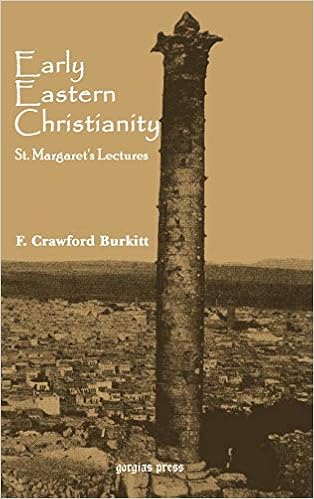This set of six lectures is at this point the best summation of the history of the Christian Church in the east that I've read. I'm sure there are other, better, more recent works on the subject, but I haven't gotten to them yet. Burkitt, here, takes the implications of the very few sources that we have and draws out a reasonable synopsis of what may well have happened to Christians east of Palestine during the first centuries of the Christian era.
The lack of sources at the time is, of course, the central issue with research in this area. What we have comes from a period much later or is questionable legend. What we do know, however, suggests that Christianity started among the Jewish people (as we are told that it came along through merchants). The first person to bring the message, Addai, apparently died in peace, but those who followed suffered or seem out of chronological time--it's claimed, for example, that the second following Addai, Palut sought ordination from Serapion in Antioch, but that would have been long after Addai, if Addai had connection the apostles. Thus, Burkitt posits that Palut was likely connected to the Catholic church (insofar as it was connected to Rome) while those before perhaps had not been (rather, the church before was more loosely configured).
What's also interesting is how the church in the East was influence by Gnostic ideas from the East itself. So often, I've read about the differing culture in the East, but Burkitt does a good job of showing how differing Christian ideas were not just a later phenomenon. The Church in the East, thus, was a different kind of Christianity, but it was, at least by the time it enters the historical records, not much more connected to its Jewish roots than Roman church of the West.







No comments:
Post a Comment